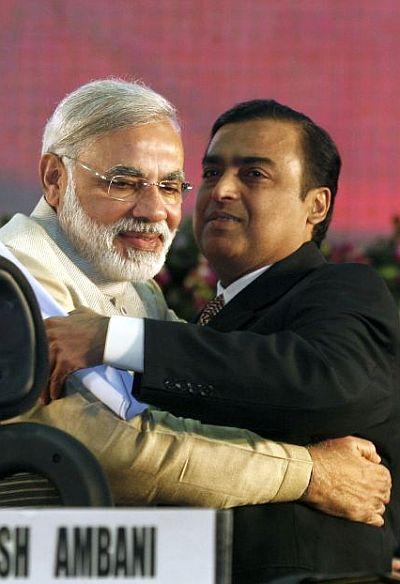
In scam-hit India, every leader is careful about the company he keeps, writes Bhupesh Bhandari.
Barack Obama last week thanked India-born Lakshmi Niwas Mittal for investing in his slowdown-hit country and creating jobs.
Mr Obama was visiting the Cleveland factory of ArcelorMittal, which makes automotive grade steel.
Mr Mittal has invested $70 million in the factory so far this year, which has provided employment to 150 people.
This might look small to us in India, but was enough to elicit a visit and fulsome praise from the president: "Today, the steel you make in Cleveland is some of the strongest you'll find anywhere in the world. It's one of the most productive plants in the world."
Nothing extraordinary here, except that I don't find India's national leaders at private-sector functions these days. In scam-hit India, every leader is careful about the company he keeps.
…
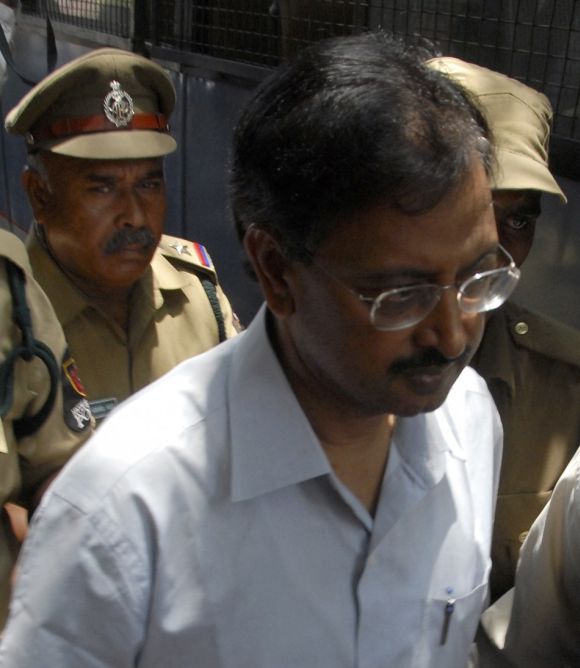
Ramalinga Raju of Satyam Computers was the toast of the town, leaders jostled with each other to share the stage with him at functions, till he confessed in January 2005 that he had inflated the books of his company for seven long years.
Since then, the list of businessmen who have suffered loss of face has increased manifold. The entire community, as a result, has become untouchable. That's the reason why you won't find the Obama-Mittal kind of bonhomie in India.
Strange as it may seem, being seen with businessmen was quite the norm for leaders in the pre-liberalisation era.
Businessmen would display prominently their pictures with leaders in their offices, and corporations would make it a point to include such pictures somewhere in their annual reports.
The pictures would be totally out of context, but the writers of the report would find a way to insert them. The idea was to tell the shareholders that your promoter is well connected and fixing the government is not an issue.
…
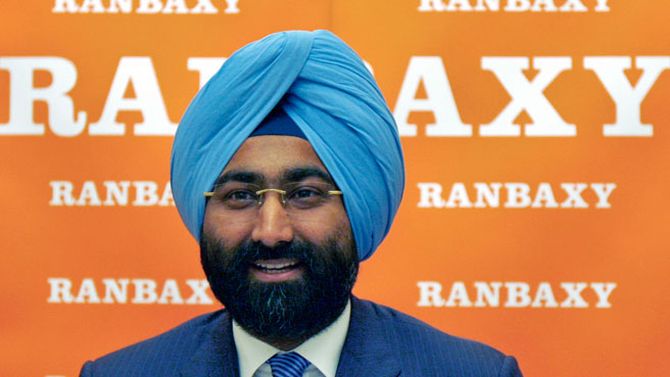
This is what core competence meant for businessmen of that time. The 1971 annual report of Ranbaxy, for instance, had on its first page a photograph of Bhai Mohan Singh (the then promoter of the company, Malvinder and Shivinder Mohan Singh's grandfather) presenting a box of Ranbaxy medicine for the National Relief Fund to then prime minister Indira Gandhi.
The photograph showed the prime minister with a benevolent smile on her face, a slightly bent Bhai Mohan Singh standing next to her, his hands folded, while PC Sethi, the minister for petroleum, chemicals and fertilisers (and hence the minister in charge of the pharmaceutical industry), looked on.
The picture could have served no other motive but to send out the message that Bhai Mohan Singh had access to Indira Gandhi. This photograph, incidentally, reappeared in Ranbaxy's 1974 annual report - on the first page again.
Things are different today. There is a wide chasm that separates business and the United Progressive Alliance government.
This has driven business straight into the arms of Narendra Modi; so much so, they are even willing to gloss over his raj dharma lapses. And this is happening at a time when the world is trying to become more business-friendly.
…

China has announced wide-ranging social and economic reforms. After three decades of breakneck growth, the country has started showing signs of slowing down.
These reforms aim to put it back on a high-growth trajectory. Grateful stock markets around the world, India included, shot up instantly.
Now take a look at what is happening in India. ArcelorMittal has abandoned its plans to invest Rs 60,000 crore (almost $10 billion) in a steel factory in India, citing problems over land acquisition and allotment of iron ore.
Posco's proposed $12-billion investment in Odisha still hangs fire, eight years after the Korean steelmaker signed the agreement with the state.
While Posco is still pursuing the project, many Indian businessmen have decided to move investments abroad simply because it's easier to do business there.
Though business is crying out for more reform, the entire government machinery - ministers as well as bureaucrats - is reluctant to take any decision, thanks to the recent investigations by the Central Bureau of Investigation into the coal-block and spectrum allocation scams.
…
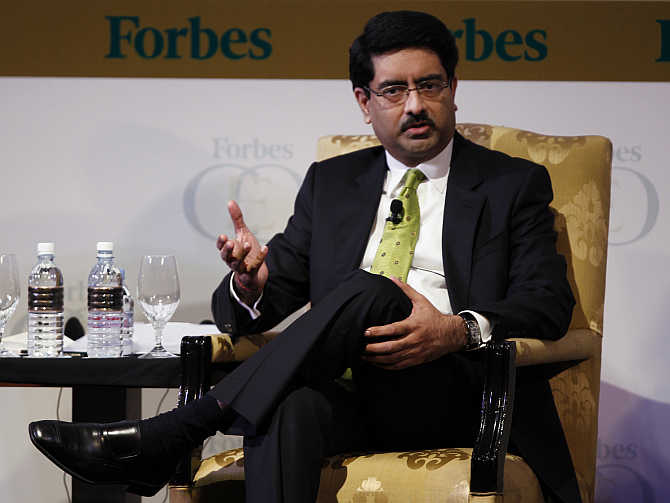
If Kumar Mangalam Birla can be named by the Central Bureau of Investigation in a first information report, and if Anil Ambani can be called to depose before a court of law, what chance to lesser businessmen stand?
Nobody was surprised when India was ranked 134th amongst 189 countries in World Bank's Doing Business 2014 report. (Last year, the country was ranked 131st).
India's performance was found to be particularly poor in enforcing contracts (ranked 186th), dealing with construction permits (182), starting a business (179) and paying taxes (158).
This shows the disconnection that exists between the government and business in the country.
In addition, business often finds itself arraigned against non-government organisations, sundry activists and Naxalites. If it is businessmen who have to take the Indian economy to commanding heights in the days to come, this mistrust doesn't augur well.
…
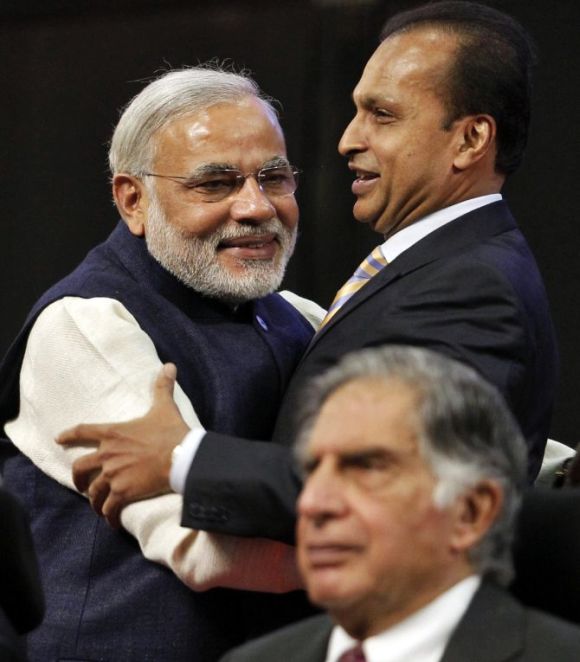
Who is to be blamed for this situation? Indian rules are such, and Indian processes so complicated, that it is impossible to do business without greasing several palms. Any businessman who tells you he has paid no bribe is not telling you the whole truth.
And such rules have not been removed because that will rob a lot of people of a lot of money. This scares businessmen: while one arm takes a bribe, the other investigates the crime.
This is not to say that businessmen are squeaky-clean people. They are as dirty as anybody else. Their misdemeanours are simply too numerous to recount here.
They might complain about cronyism, but they have thrived under it. If they have a poor image in popular imagination, they cannot escape the blame for it.